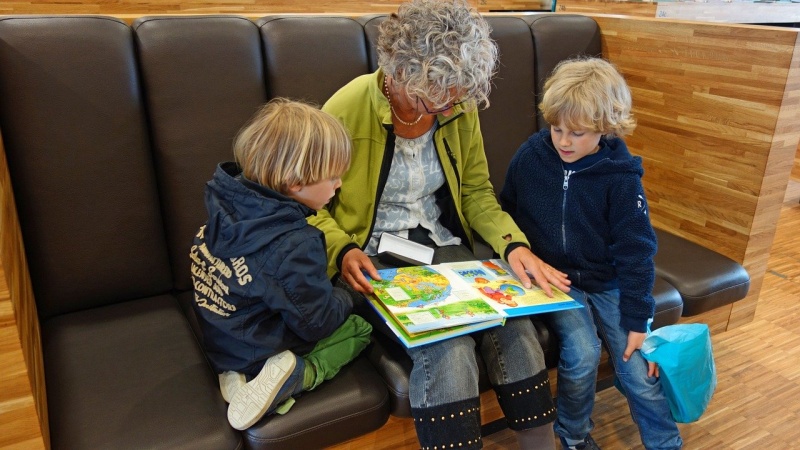
Most children in the world are raised in multi-generation families implying daily contact with their grandparents. However, this does not apply to Europe and the Western world in general. Here, each family lives separately in their own, often small, house or apartment, and in many countries, parents even require their children to become financially independent and leave the family nest as soon as possible. But doesn't living under a common roof make it impossible to build close relations between grandparents and grandchildren? What is the role of a grandmother and grandfather today, and how can they wisely and fruitfully fulfil it?
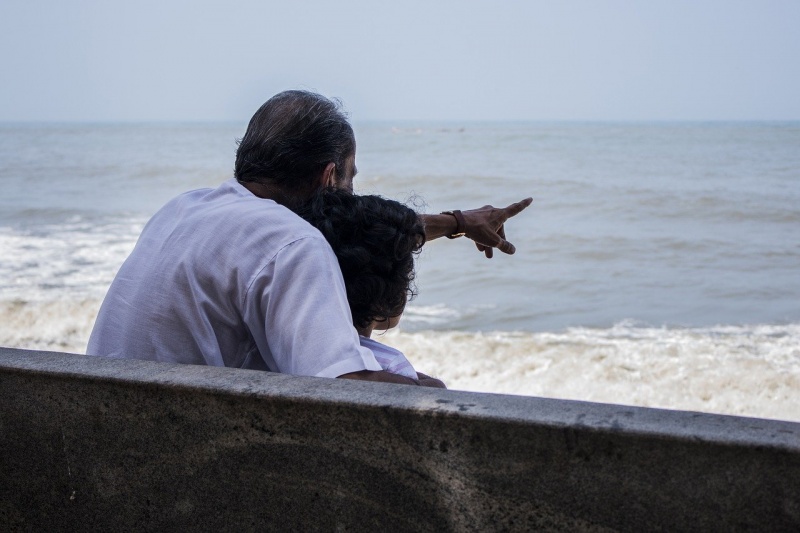
GOOD ADVICE AND PRICELESS SUPPORT
Nina comes from a large family and is herself a mother of seven daughters between the ages of three and fifteen. Her parents are expecting the birth of their eighteenth grandson, who is due in March. Fortunately, the whole family lives in Warsaw, so it is much easier to help each other when necessary than if they live far away from each other. Nina's parents don't sit with their grandchildren every day, but in an emergency you can always ask them for help. Especially dad, since he retired. When Nina is in a spot of bother and has to take the children to music school or classes, and Dad is healthy and is not looking after a different grandson on that day, you always make a call, and his help is always forthcoming. He can do four car runs in the afternoon, or come and watch over the children. "He's not a great babysitter - he won't bathe or change a diaper - but he sits in a chair and keeps an eye on everything. You can also drop the children off at their grandfather's - then he'll turn on a cartoon, make them tea and feed them chocolates, crisps and even a sandwich so they don't starve to death. He is always positive about this help." - says Nina.
At the beginning of Nina and Max's marriage it was not easy for them. Nina's mother was busy with her adolescent children, dad and in-laws were working. But when Max couldn't take a holiday after the birth of one of his daughters, and Nina was in bad shape, Mom and Mother-in-law agreed to be on duty and exchanged for care of the other children.
Nina emphasizes that grandparents are very supportive and help to the best of their ability, with a view to the welfare of their grandchildren and their own children. But from her point of view, the most important thing is not to interfere in the home life of adult children: "It is harder to stand a grandfather who comes to help every day but gets involved in everything than a grandfather who helps once or twice a month, but doesn't give a hint of criticism about the children's lifestyle and the methods of raising grandchildren. This is priceless. Not interfering is more valuable than helping every day." Nina, listening to the stories of some of her colleagues, has great respect for the attitude of her parents and in-laws, from whom she has never experienced any interference in her and Max's life.
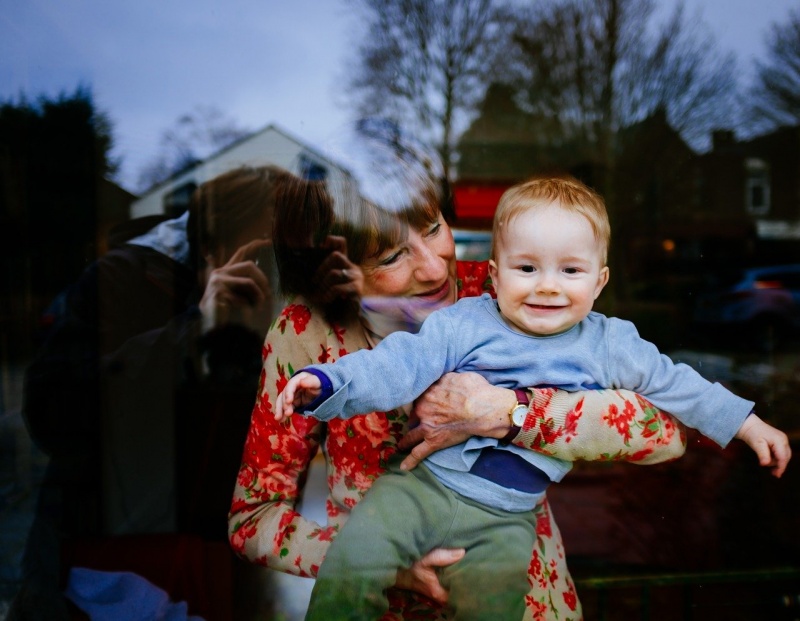
Tomasz has lived in Budapest for almost thirty years. There he met his wife Maria while studying. It was there that the three of their children, now adults, were born. When he and his wife were arranging their apartment for each other, Tomasz was surprised that his father-in-law did not rush to provide any advice or help in choosing the equipment. When asked by his son-in-law if he would like to tell them something, he replied briefly: "These are your affairs. For Tomasz, this lack of interest on the part of his father-in-law was surprising, because he got used to something completely different in his family home. How deep are the differences between his Polish and new Hungarian family he found out after the birth of his children.
When Maria left the hospital after the birth of her first child, they agreed with her mother-in-law that she would help them in the first days after the birth. Maria's mother-in-law did indeed provide them with great help at the agreed time, but as soon as all the help passed, she stopped as if she had cut a knife. The in-laws made it clear that if there was a need, they were ready to help at any time, but they had to be asked for it in advance and made an appointment. There were no unannounced visits, neither mother-in-law nor father-in-law asked if the young parents needed anything. It was all the more surprising for Tomasz, because they lived very close to each other. For him, accustomed to close and lively relations with his own parents and siblings, this formalism was a great surprise. He asked his wife about the behaviour of his in-laws and heard that they were simply trying not to interfere with their new family.
Children were born year after year, so Tomasz and Maria did not have much time for each other. They missed to go out for a walk just the two of them. They were catching their breath when Tomasz's mother and his younger brother came to Hungary on holiday.
Tomasz's in-laws were active for many years and when they retired a new procedure was established - they watched over their youngest grandson on a certain day of the week, when Maria and Tomasz were both at work. Each time it was determined precisely what time the child would be picked up from them. When the children grew up and went to school, the grandparents also started to take them on holidays to the countryside, or sometimes to each other for the night. But for many years, when the children were small, Tomasz sighed at the thought of an enterprising Polish grandmother who would look at the tea, and you could drop in unannounced and get drunk and fed.
INVESTMENT IN LIFE
Tomasz, despite all the differences, likes his in-laws very much and respects the fact that they share his values, which is invaluable also in the process of raising children. He was all the more worried that his sons and daughter might have too loose or not good enough relations with their grandparents. He decided to take matters into his own hands. He sent the children for tea to grandmother and grandfather and encouraged them to help their grandparents. All this in its time brought fruit. Today the grandchildren are in close relations with their grandparents, they like to talk to each other very much, they appreciate the time spent together. And when the snow falls, the grandchildren go to pick it up from their grandparents' driveway. Tomasz notes that his in-laws are really enjoying this relationship. He also emphasizes their efforts to maintain the bond in the family. This is done through family dinners, which his mother-in-law spends once a month for her children and grandchildren. Since the family is quite large, nearly twenty people gather at the table. Maria's mother-in-law prepares so much food that everyone gets some more food to take away.
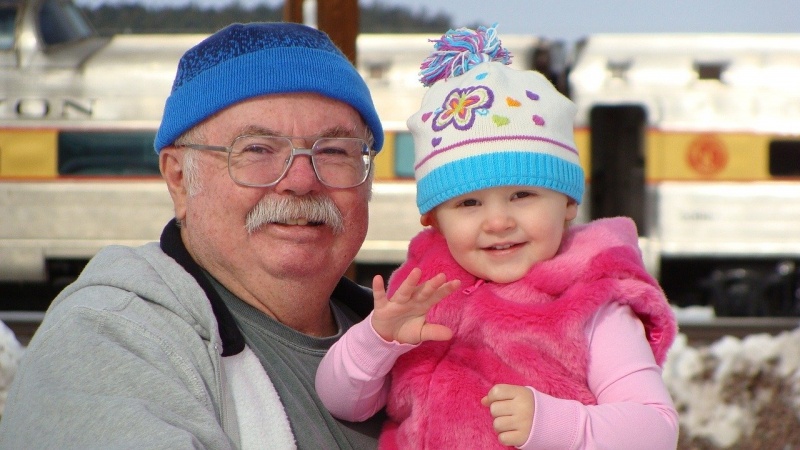
Nina's mother cooks a big pot of broth every Christmas and fries piles of chops to feed all the grandchildren when they visit her at once. When Nina asked her what she wanted to get under the Christmas tree she heard: "A pack of fudge - the greatest fun is to serve the grandchildren fudge." Grandma is also a specialist in unusual entertainment for grandchildren: "Mom often makes up some wild expeditions. And this is the theatre, and this is a visit to the Jewish cemetery, and in the summer she organized a trip to the beach by the Vistula - by ferry across the Vistula! Last year, during the holidays, she took a team of eight grandchildren on skates at once. There was also an advent when every morning she showed up to take her grandchildren to the Rorate masses - because I simply couldn't go with a baby, the girls were too small to walk alone, and they wanted it very, very much...". Speaking about her dad, Nina mentions that when she was a child he had endless patience for some things - for example, translating physics. But not to domestic, everyday things anymore. To his grandchildren, he has a lot more patience and a calm look at many things: "Girls can ask him any number of questions on any subject, and my dad sits there, peels them with his penknife - and that's very precise - oranges or pomelos and answers these questions. The kids love spending time with him." Nina emphasizes that her dad has a very important educational function for her grandchildren: "In all his conversations and lectures for his grandchildren, he sends a message of morality, reason, wisdom, love, but in a completely different way from us parents. He does not have to maintain such discipline. Another thing is that the children don't get too far away from him, they have respect for their grandfather." Grandpa is a reference point for grandchildren: "He has the same level of value as us, the same moral base, and a great deal of knowledge. You can ask him about anything - about air molecules, whether we are threatened by the end of the world, whether white is all colours. Sometimes my thirteen-year-old daughter Helena comes to me and asks me something, and when I don't know, she says: Grandpa would know. Because Grandpa knows everything. And a little more." Helena has been asking a lot of questions about her financial status lately. She has been living through the fact that being a child in a family with many children, she has fewer things than her peers. She would very much like to have her own room, decorated in her own style, and shares the room with her sisters. She had discussions with her parents and then with her grandfather about what it means to be rich and poor. Nina says about her father that he is the only man she knows who has freedom to money: "My dad invested all his hard-earned money in what he calls life without any problems. He never forgot the money he invested in us, his children, or my siblings. He believed that this money was not wasted. For example, he paid for my musical education, even though I was too old and am not a violinist today. I really wanted to learn to play and I put a lot of work into it, he saw it and decided that it makes sense to pay me lessons. Today I can help my daughter, who is very talented and is studying in first degree music school. These are the fruits of my dad's investment. He supports his grandchildren's passions in a similar way. This is what he calls an investment in life. He also teaches it to his grandchildren. When Hela talks to him about money, her grandfather shows her that perspective - freedom and wise spending." Nina concludes: "My dad loves his grandchildren very much and has a deep acceptance of his own life, even though it turned out completely different than he planned. When I look at him, I have a desire to be a grandmother like him."
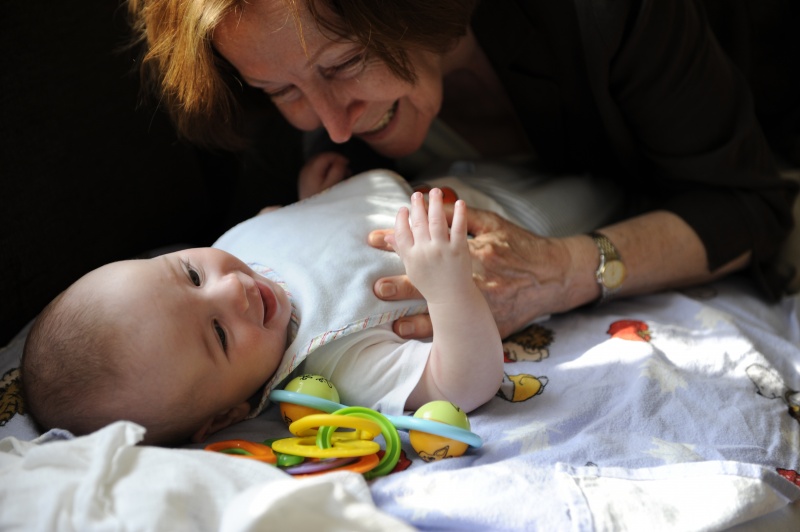
***
A young mother once wrote to the editorial office of one of the family portals, complaining that her parents are not at all interested in their grandchildren. They travel, play tennis, follow different diets and have no place for adult children and their own grandchildren in their lives. Certainly not only these grandparents have fallen into a similar trap. In an era of highly advertised self-investment and self-esteem, any role in life that requires giving or sacrificing something of oneself for others may seem unattractive and completely passé. In times of selfishness, love seems to be passé... but does this mean that we don't need it and we don't miss it? No material goods can compensate for a lack of love. No journey, no creation, no home will fill the void in the human heart. So what do you advise your grandparents? First of all, be a supporter of your adult children and enjoy every grandchild just as much. Don't forget that a pot of soup, or taking your granddaughter to a dance or your grandson to a football game means more than the most beautiful gift from your absent grandparents. And that nothing can replace talking about children's passions and patiently answering hundreds of questions. Just stay close.
Zdjęcia: Marta Dzbeńska-Karpińska, Pixabay, Unsplash
Tekst: Marta Dzbeńska-Karpińska
Autorka jest z wykształcenia politologiem i fotografem, redaktorką portalu wrodzinie.pl
